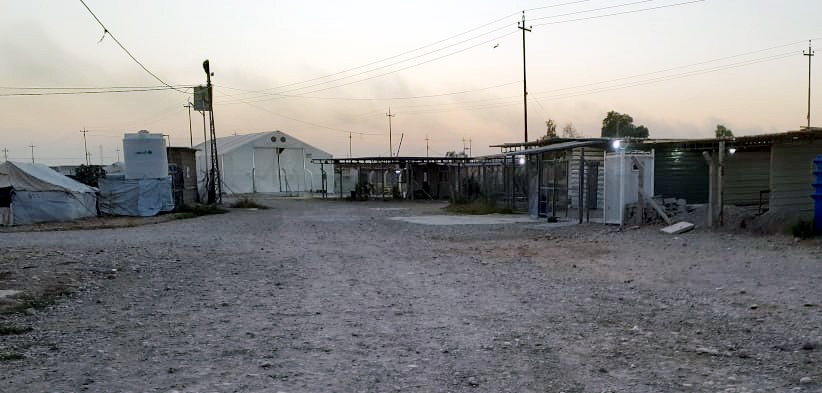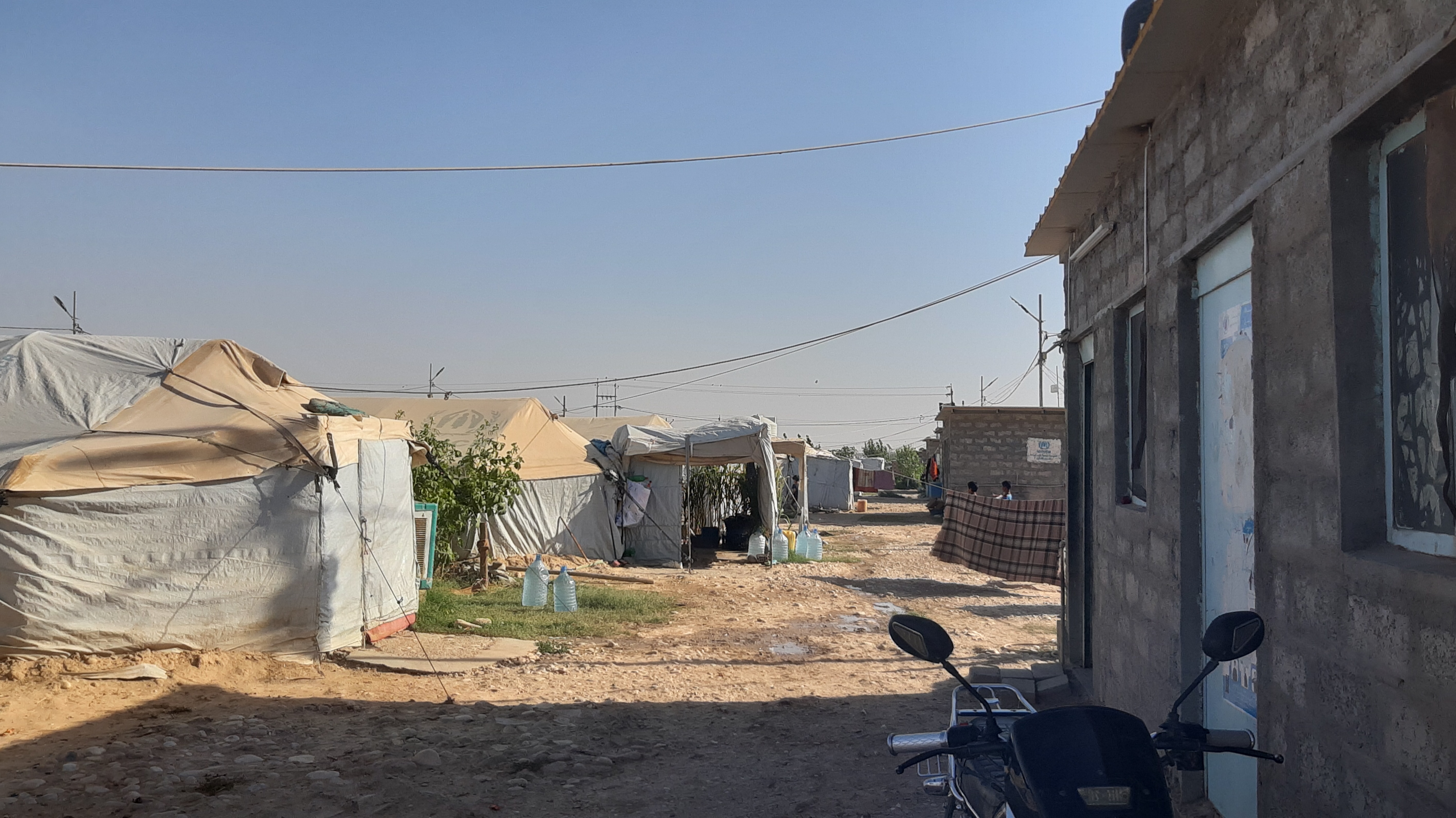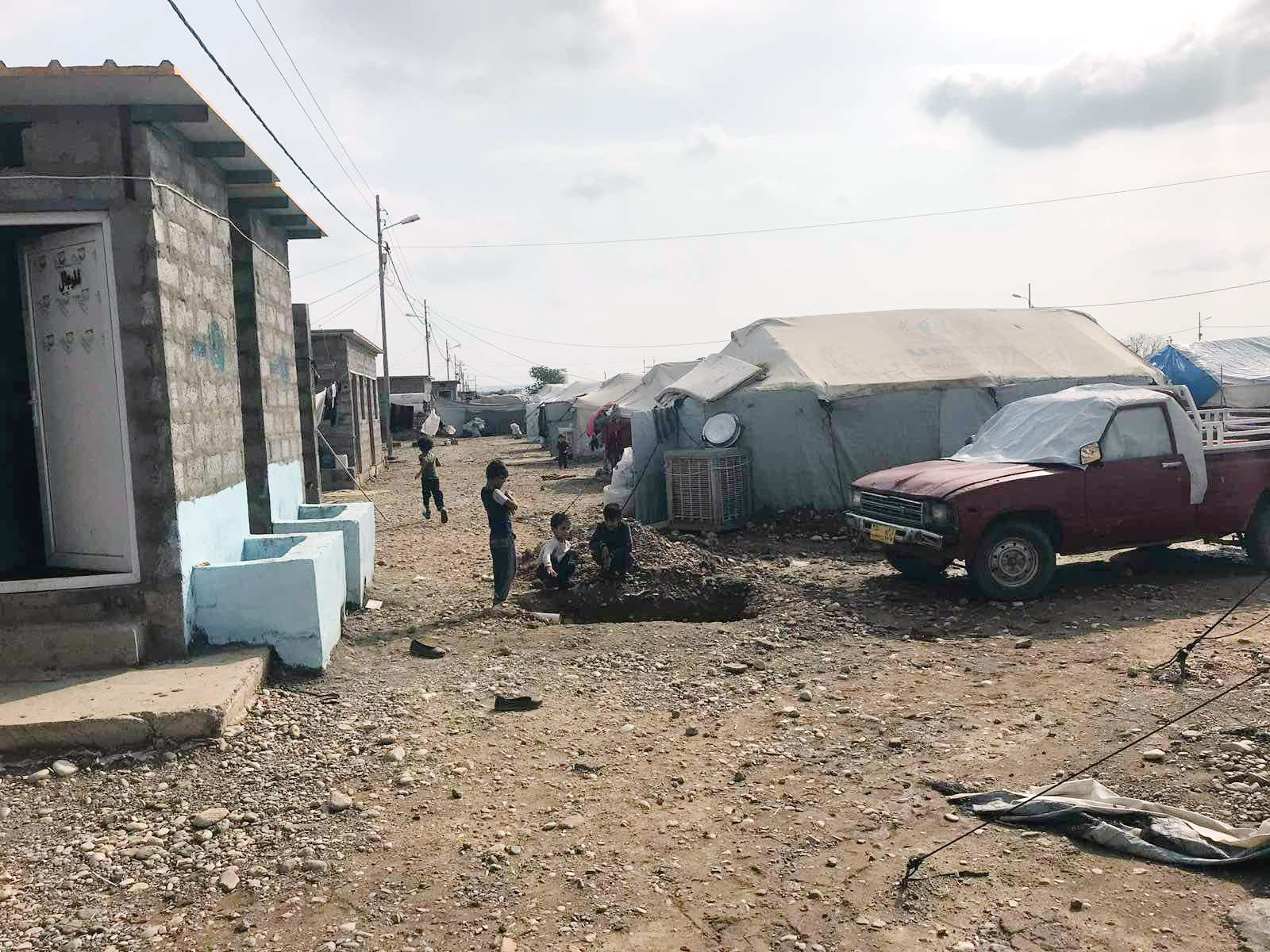With the cold winter months looming, and on top of anxiety of the surging pandemic, the destitute IDPs (internally displaced persons) in Kirkuk province, living in battered old tents, face shortages in heating fuel.
There are only two IDP camps left in Kirkuk province which shelter more than 2,000 IDPs from Hawija district and the provinces Nineveh, Diyala and Salahuddin.
“Winter is around the corner and we have still not been given new tents, nor other necessities like blankets, heaters or heating fuel,” said 24-year-old Hadiya Ali.
Hadiya has three children and worries about the winter cold as they lack basic necessities and cannot afford buying them themselves.

The Federal Government provides the IDPs with foodstuffs, and some NGOs grant them cash to buy their basic needs, especially in times of the pandemic as most are no longer able to work due to the measures imposed againt the spread of the COVID-19 virus, and their consequent economic slowdown.
Another female IDP, Um-Humam, says they haven’t received any financial aid in three months, while they were receiving it once in two months previously.
The amount they were being given was 17,000 Iraqi Dinars (about $14,30).
“That amount was also too small to get by with; food prices are too high and people are jobless,” said Um-Humam who has a family of six.
Like other IDPs, she too complains about poverty and lack of preparations for the winter.
Most of the IDPs in the camps were displaced six years ago due to ISIS attacks.
Despite the retaking of their home regions by the authorities for more than three years, many are still not willing to go back due to lack of basic services and reconstruction.
Ra’id Nasir (36) is more concerned about the dangers of the COVID-19 pandemic than bout the cold and poverty, as no measures against the spread of the virus have been taken at his camp.
the rubbish containers are very old; they have become a hotbed for bacteria and viruses
“We lack disinfectants. And most of the rubbish containers are very old; they have become a hotbed for bacteria and viruses. […] they have become a cause for spreading diseases,” Ra’id said.
Ra’id says that since the outbreak of the Coronavirus, disinfectants have been sprayed only once.

He adds that social distancing is difficult as there is only one kitchen per four families, and that people resort to cooking inside their tents to avoid contact.
Ra’id and many of the IDPs say they will only return to their home regions if at least basic services are restored there.
The Federal Government has launched a programme to return all IDPs on a voluntary basis to their home regions and close down all the camps before the year’s end. As incentive the government grants 1,5 million Dinars (about $1260) to each family that returns.
There used to be six IDP camps in Kirkuk province, there are currently only two: Laylan 1 and Yahyawa.





